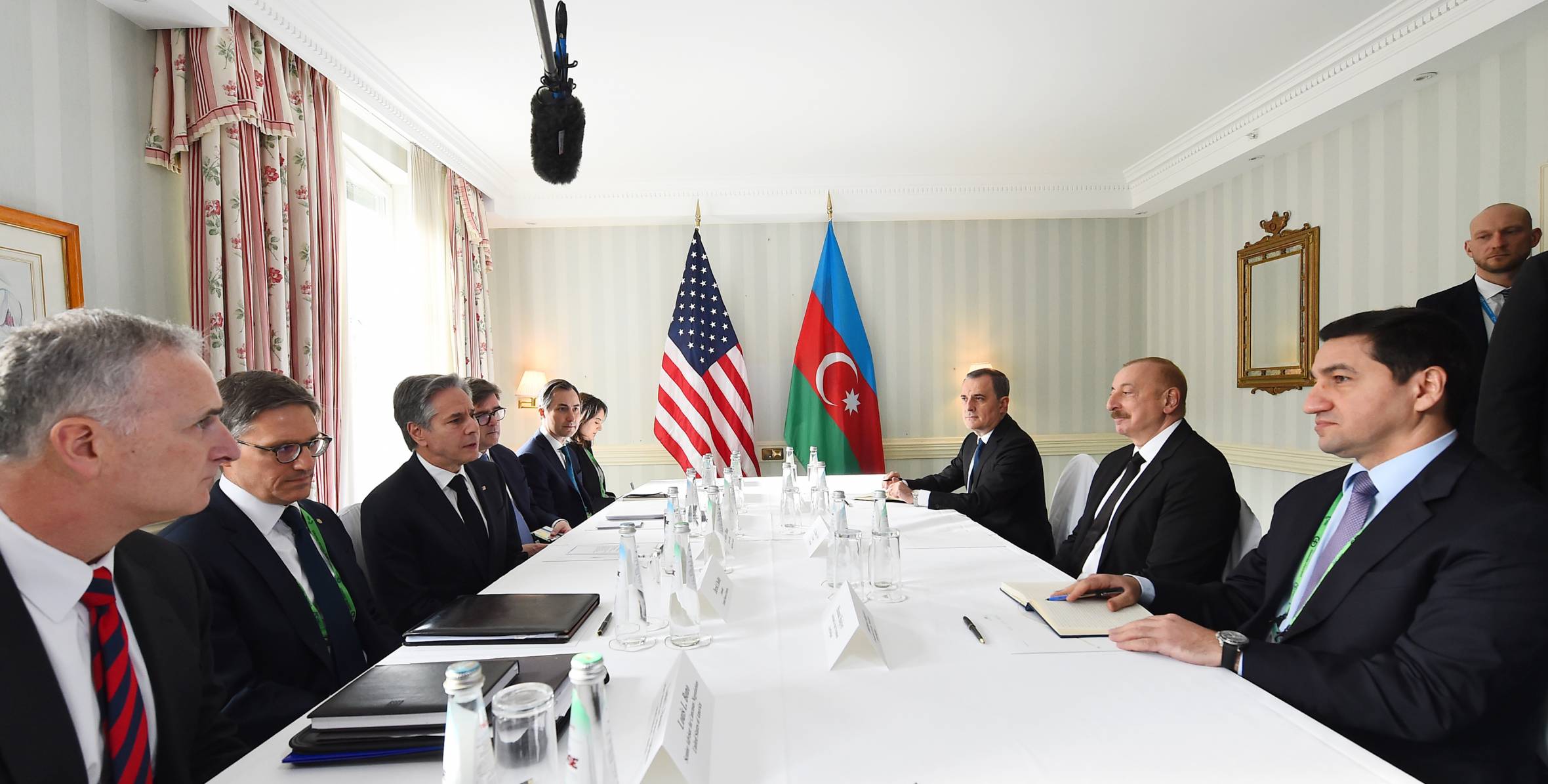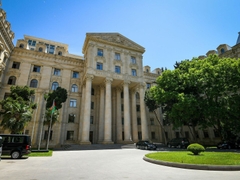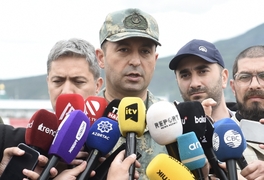U.S. Secretary of State Antony Blinken reiterated Washington’s unwavering support for the ongoing peace process between Azerbaijan and Armenia in a phone call with President Ilham Aliyev of Azerbaijan on Sunday.
Secretary Blinken praised the mutual agreement between Baku and Yerevan to commence border delimitation based on the 1991 Alma-Ata Declaration, emphasizing the importance of intensified efforts to conclude a durable peace.
For his part, President Aliyev highlighted that “the agreement achieved by the delimitation commission of both countries was the outcome of bilateral discussions conducted in a spirit of dialogue and mutual understanding.”
“Azerbaijan supports the establishment of an integrated South Caucasus regional cooperation model devoid of any dividing lines,” President Aliyev told Blinken.
The Azerbaijani president also noted that negotiations on the peace treaty would gain momentum in an upcoming meeting between the foreign ministers of Azerbaijan and Armenia in Almaty, proposed by Kazakhstan. The cornerstone five principles for the peace process, initiated by Azerbaijan in March 2022, would guide the discussions in Almaty.
On April 19, the governments of Azerbaijan and Armenia announced that their border delimitation commissions had reached a mutual agreement to commence the delimitation of the frontiers.
By April 23, the first border markers were installed along the borderline. As of April 30, a total of 35 markers had been installed across at least 12 kilometers of the border.
Secretary Blinken commended the agreement between Baku and Yerevan, describing it as “an important step towards concluding a durable and dignified peace agreement.”
Azerbaijan and Armenia have agreed that they will base the delimitation process on the 1991 Alma-Ata Declaration. Signatories of the declaration, including Armenia and Azerbaijan, agreed to recognize and respect each other’s territorial integrity and the inviolability of the existing borders. The sides also agreed to continue the delimitation process on all other parts of the border, including enclave and exclave issues.
Last week, President Aliyev stated that the delimitation of the borders is a lengthy process that cannot be completed in a short period of time.
“The biggest part of the border is absolutely uninhabited, and the height of the mountains is 3,500 meters, and for nine months a year, it is covered with snow. So, it's really a very difficult terrain. So, from a practical point of view, to delimitate this border within a short period of time is not possible,” President Aliyev said in an international conference in Baku on April 23.
A significant part of Azerbaijan’s state border with Armenia, measuring 1,007 kilometers, remained out of the country’s control for nearly 30 years after the Karabakh (Garabagh) and East Zangezur regions fell under illegal Armenian occupation in the early 1990s.
Following the Soviet Union’s dissolution in 1991, Armenia launched a full-blown military campaign against Azerbaijan, marking the longest and deadliest war in the South Caucasus region. The bloody war ended with a ceasefire in 1994, which saw Armenia forcibly occupying 20 percent of Azerbaijan’s internationally recognized territories. Over 30,000 Azerbaijanis were killed, and one million others were expelled from those lands in a brutal ethnic cleansing campaign conducted by Armenia.
On September 27, 2020, the decades-old conflict between the two countries took a violent turn after Armenian forces deployed in occupied Azerbaijani lands shelled military positions and civilian settlements of Azerbaijan. During the counter-attack operations, which lasted 44 days, Azerbaijani forces liberated over 300 settlements, including the cities of Jabrayil, Fuzuli, Zangilan, Gubadli, and Shusha, from nearly 30-year-long illegal Armenian occupation.
The war ended in a tripartite statement signed by Armenia, Azerbaijan, and Russia on November 10, 2020. Under the statement, Armenia also returned the occupied Aghdam, Kalbajar, and Lachin districts to Azerbaijan.
The cartographic complications on the Armenia-Azerbaijan state border surfaced following Azerbaijan’s victory in the 2020 war, as a result of which the Azerbaijani army restored control over a large portion of the border with Armenia.







 Turkmenistan's Foreign Minister Rashit Meredow and EU's Special Representative for Central Asia Terhi Hakala have discussed prospects for cooperati...
Turkmenistan's Foreign Minister Rashit Meredow and EU's Special Representative for Central Asia Terhi Hakala have discussed prospects for cooperati...
 In a high-profile trial that has gripped the nation, Kuandyk Bishimbayev, Kazakhstan’s former economy minister, has been sentenced to 24 years in p...
In a high-profile trial that has gripped the nation, Kuandyk Bishimbayev, Kazakhstan’s former economy minister, has been sentenced to 24 years in p...
 Foreign Minister of Azerbaijan Jeyhun Bayramov met with his Armenian counterpart Ararat Mirzoyan in Almaty, Kazakhstan, to negotiate the peace agenda.
Foreign Minister of Azerbaijan Jeyhun Bayramov met with his Armenian counterpart Ararat Mirzoyan in Almaty, Kazakhstan, to negotiate the peace agenda.
 Russia is moving forward with what it calls a “special military operation” in Ukraine with its forces advancing in the Kharkiv region.
Russia is moving forward with what it calls a “special military operation” in Ukraine with its forces advancing in the Kharkiv region.



